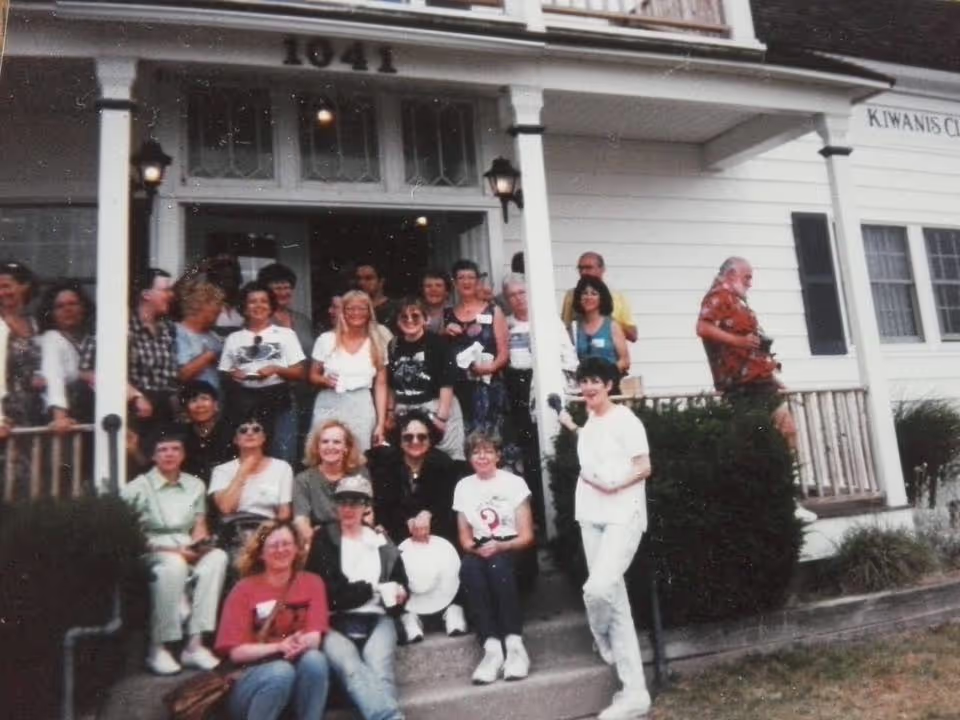
Finding a community can be transformative for people navigating hearing loss. Whether you’re newly diagnosed, a late-deafened adult, or have lived with hearing loss for decades, connecting with others who truly understand can offer encouragement, practical tools, and a deep sense of belonging.
That’s why we’re launching a new blog series spotlighting organizations that bring people together, share knowledge, and champion accessibility. First up: SayWhatClub — a grassroots, online network that has been fostering meaningful connection and peer support for people with hearing loss for nearly three decades.
To bring their work to life, we spoke with Lorne Smith, Past President and longtime leader of SayWhatClub, about the group’s mission, the value of accessible communication, and how they’ve built an enduring space for community.
SayWhatClub began in the mid-1990s, when a handful of people with hearing loss started connecting through email lists. The name — a lighthearted nod to the frequent “What?” in conversations — quickly became a symbol of shared experience and camaraderie.
From those first email exchanges, SWC has grown into a vibrant, international community. Its mission remains simple yet powerful: to provide peer support, foster inclusion, and share resources with people who have hearing loss, as well as their families and friends. At its core, SWC is built on the belief that lived experience is one of the most valuable forms of knowledge — and that no one should face hearing loss alone.
At the heart of SWC are its email discussion lists, where members from around the globe can connect 24/7. These lists provide a safe, judgment-free space to exchange experiences, ask questions, and offer encouragement — all in a written format that ensures accessibility for everyone, regardless of technology or time zone.
Members share practical advice on everything from assistive listening devices and captioning services to coping strategies for noisy environments. This peer-to-peer exchange often uncovers tips and tools that aren’t easy to find through a simple internet search.
While SWC thrives online, it also hosts annual conventions, regional gatherings, and informal meetups. These in-person events deepen relationships, offer educational workshops, and create social spaces designed with accessibility in mind.
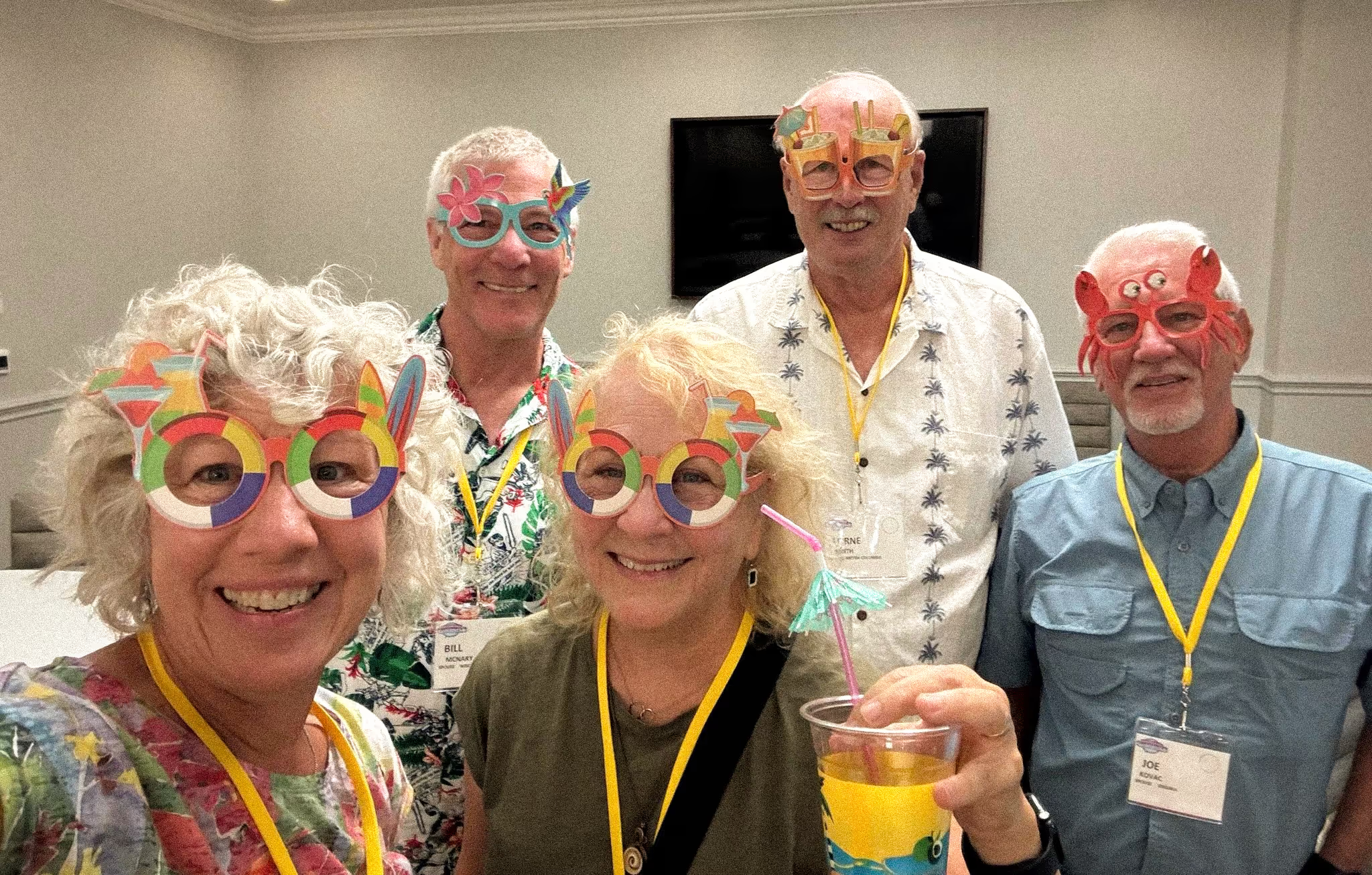
Many members describe SWC as their lifeline — a place that helped them move from isolation toward empowerment. For those newly diagnosed, simply meeting others who “get it” can be transformative. Longtime members often stay active to give back, offering the same welcome and support they once received.
SWC welcomes people from all walks of life — from late-deafened adults adjusting to sudden changes, to lifelong hearing aid users, to cochlear implant recipients learning to navigate new sounds. No matter where someone is in their journey, they can find encouragement, understanding, and connection here.
We spoke with Lorne Smith, Past President and longtime leader of SWC, to hear firsthand how the organization creates connection, empowers members, and keeps accessibility at the heart of everything it does.
SayWhatClub is an online peer-support organization. People who reach out to us often don’t know anyone else with hearing loss, and are looking for information, understanding, support and friendship. They’re welcomed by existing members and subscribers, and get a chance to ask questions and receive support from others who have been in their shoes.
Many people have described joining the SayWhatClub as a life-changing experience. Rather than struggling alone with the frustration of living with hearing loss, they’re surrounded by a new family of friends who “get it.”
One person shared how she stood crying outside her doctor’s office after learning her hearing had taken another drop. She went home and searched online for support. In her words: “I found the SayWhatClub, and soon learned I’d found ‘my tribe,’ my people, others like me, who understood. The people here soon became dear friends, far beyond the commonality of hearing loss. I was home.”
A school teacher told of being on the verge of tears after struggling to hear during a day of in-service training. She confessed to her principal that she “couldn’t do this any more.” He excused her from the training and suggested she look for online resources. She found SWC, joined immediately, and discovered a community of support that enabled her to continue her career.
People who join SayWhatClub often say they feel misunderstood, isolated and frustrated, even among friends, family and coworkers. Living with hearing loss can be overwhelming without a network of support. SayWhatClubbers share a commitment to supporting one another and finding practical solutions to everyday frustrations.
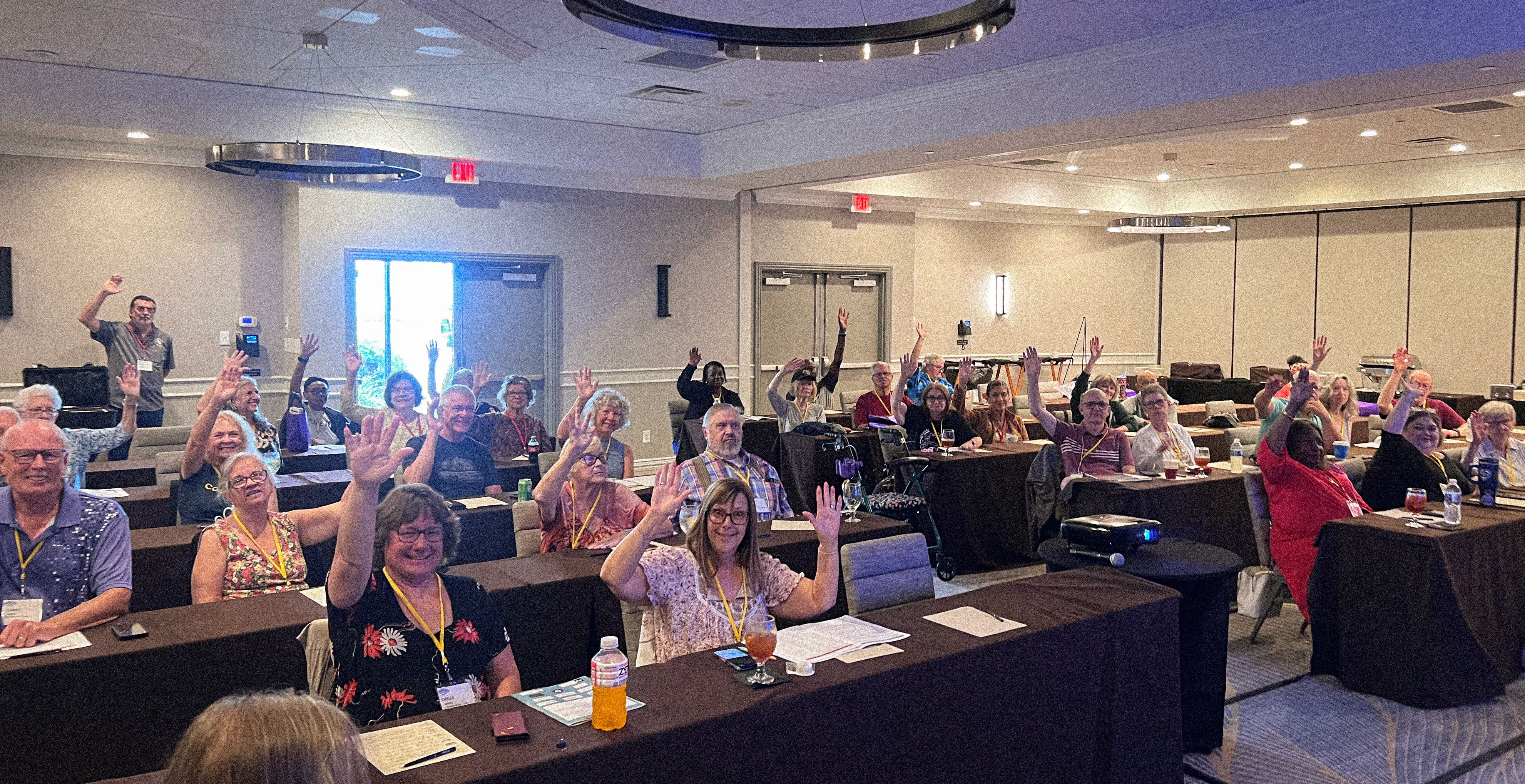
SayWhatClubbers are committed to supporting and reassuring each other that we are not alone. Others in the club face many of the same challenges and can share their experience. They love to give back the support that they have received themselves.
The SayWhatClub has several general discussion lists. Each has its own personality and pace of discussion. Most allow wide-ranging conversations, where people can share personal details in confidence. These lists are the online equivalent of coffee-shop chats among friends — safe, secure, and accessible spaces for people who often find in-person conversations stressful or inaccessible.
One general list includes members with both hearing and vision loss, which adds another level of stress and frustration. Another is known for active discussions of current events alongside hearing loss. There’s also a specialized list for people who have cochlear implants or are considering them.
Applicants receive descriptions of each list and can choose whichever feels like the best fit, with the freedom to switch if they’re not comfortable with their first choice.
People are welcome to vent their frustrations, and often do. Just lending a sympathetic ear to someone who has had a rough day can bring relief. One person related a terrifying experience of being rescued from her home during an emergency because she hadn’t heard warning sirens. Another was pulled over and confronted by police at gunpoint after not hearing an officer’s instructions. Being deaf and alone can pose life-threatening dangers, and sharing those stories helps others feel less alone.
SayWhatClubbers have a wide range of experience with hearing loss, assistive devices, and advocacy, and they love to share it whenever a new person joins a list. When someone raises a question or shares a frustration, others are eager to explain how they’ve handled similar situations. These exchanges not only provide practical solutions and coping strategies, but also strengthen relationships. The more we get to know each other, the stronger our bonds become — bonds that often grow into lasting online friendships and are renewed and strengthened in person at our annual conventions.
SayWhatClub lists are safe spaces where personal information can be shared in confidence. A wide range of experiences and ideas are exchanged in a supportive environment. Little moderation is required, and most lists shun discussion of controversial topics.
Compassion and acceptance are key qualities. We may not all have the same background and experience, but we can lend a sympathetic ear. That mutual respect is what keeps our conversations constructive, even when challenges arise.
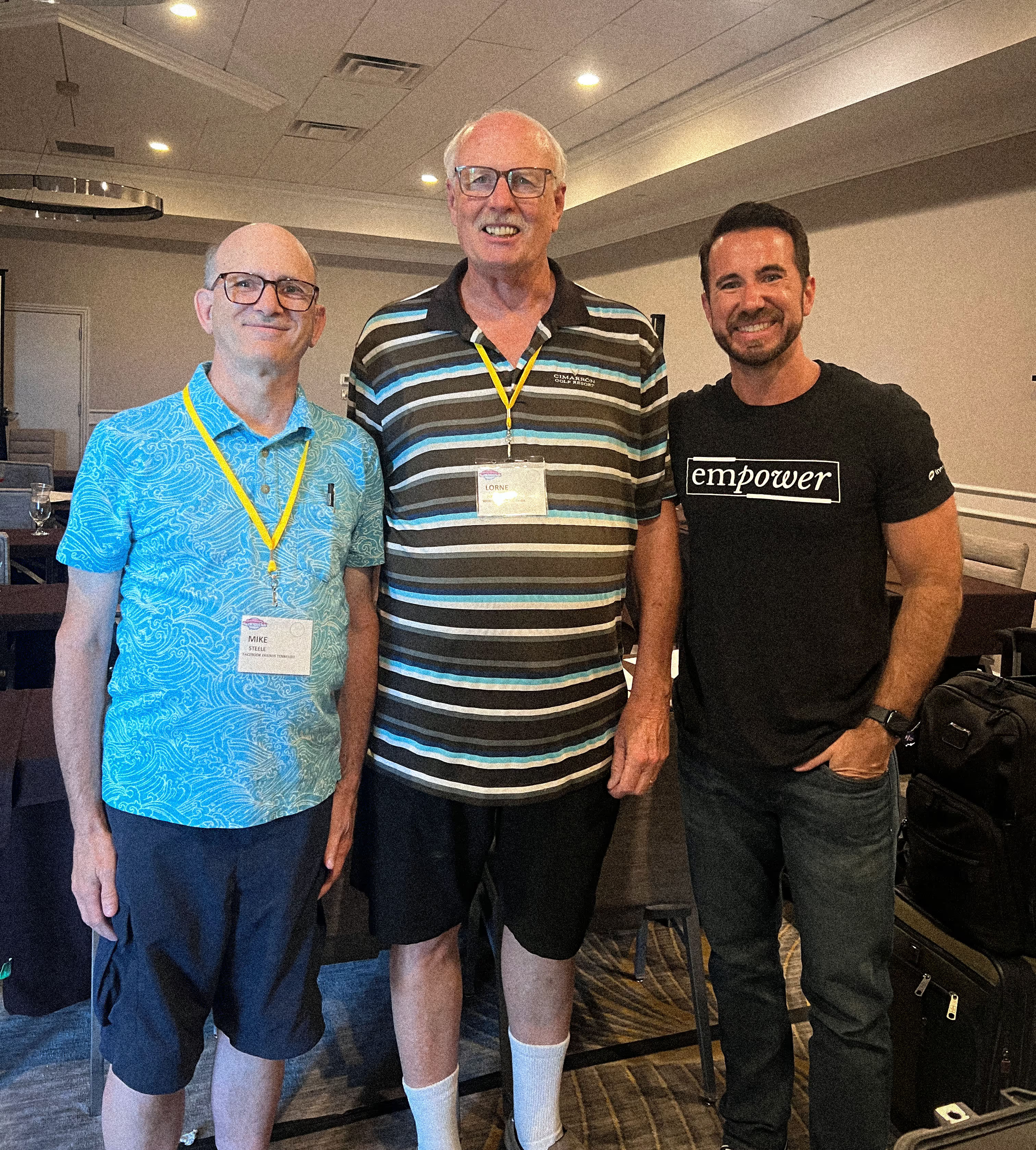
I’ve always been fascinated by new technology. The first time I met other SWCers in 2002, I was introduced to PockeTalkers, telecoil neckloops and other personal amplification technologies. I soon ordered my own neckloop for my mobile phone, and later added an FM system, captioning apps and advanced digital hearing aids with Bluetooth and Auracast audio.
Most of my knowledge of assistive devices, apps and strategies has come directly from SayWhatClub members, sponsors and convention speakers. These shared tips have had a lasting impact on how I navigate hearing loss.
The SayWhatClub is entirely volunteer-driven, with no paid staff. Some of our key volunteer needs include social media moderators and monitors, blog writers and website editors. Anyone interested in helping the club can find a role, with no experience necessary.
My first volunteer role with the SayWhatClub more than 20 years ago is still my favorite: serving as a list rep who welcomes people to the club and helps them find the support and information they’re seeking. Greeting people with understanding and sympathy puts them at ease. This has led to many longstanding online friendships that are strengthened in person at our annual conventions.
We have a wide range of volunteer needs in social media, including monitoring and posting content to our public Facebook page and closed Facebook groups with several thousand members, as well as blogging and posting content to our other social media channels. We want to reach out and help as many people as possible.
The SayWhatClub is a reflection of its membership and volunteers. From our earliest days in the 1990s, our core focus has been on making personal connections through our online discussion lists and annual conventions. We’ve broadened that outreach to connect with thousands of people through our website, public Facebook page, closed Facebook groups and other social media channels. We’re always looking for new ideas and new ways to reach people seeking hearing-loss support.
Getting started is simple: visit saywhatclub.org and choose the email list that best fits your interests or needs. Membership is free, making it accessible to anyone with an internet connection.
Introduce yourself in an email list, join a virtual discussion, or plan to attend a future SWC event. For those looking to get more involved, volunteer opportunities include moderating discussions, planning gatherings, or welcoming new members.
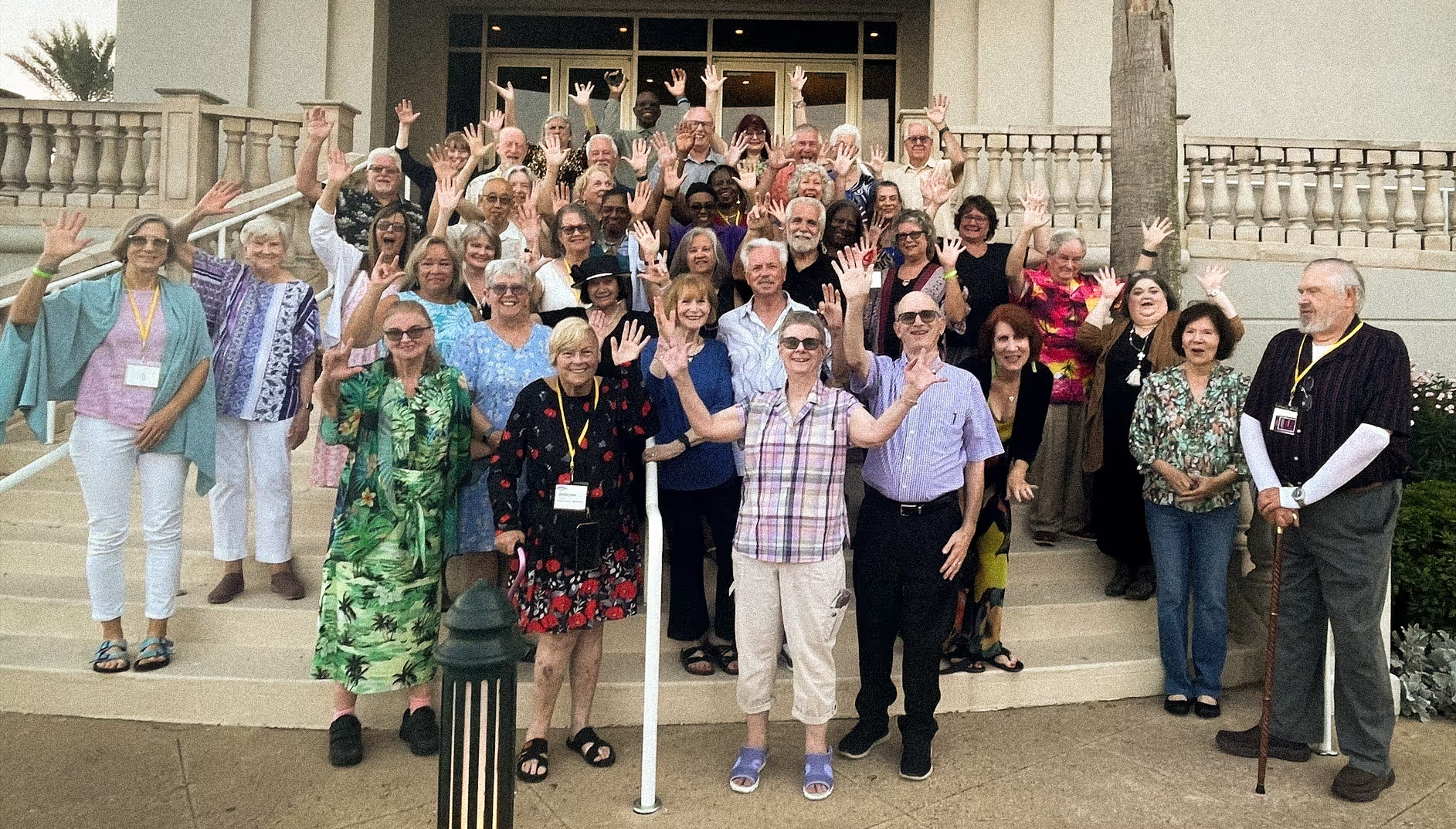
SayWhatClub fills a unique and often overlooked gap in the hearing loss community by offering accessible, always-available peer support. For those without local resources or who prefer written communication, it can be a lifeline.
By fostering an environment where members can share openly, ask questions without judgment, and build lasting friendships, SWC shows that connection doesn’t have to depend on location, formal meetings, or even video calls. Sometimes, it’s simply about having a space where you are heard and understood.
In our next spotlight, we’ll turn to ALDA (Association of Late-Deafened Adults) — exploring how they bring people together through in-person events, advocacy, and peer support. Stay tuned as we continue highlighting organizations making a difference in the hearing loss community.
InnoCaption provides real-time captioning technology making phone calls easy and accessible for the deaf and hard of hearing community. Offered at no cost to individuals with hearing loss because we are certified by the FCC. InnoCaption is the only mobile app that offers real-time captioning of phone calls through live stenographers and automated speech recognition software. The choice is yours.